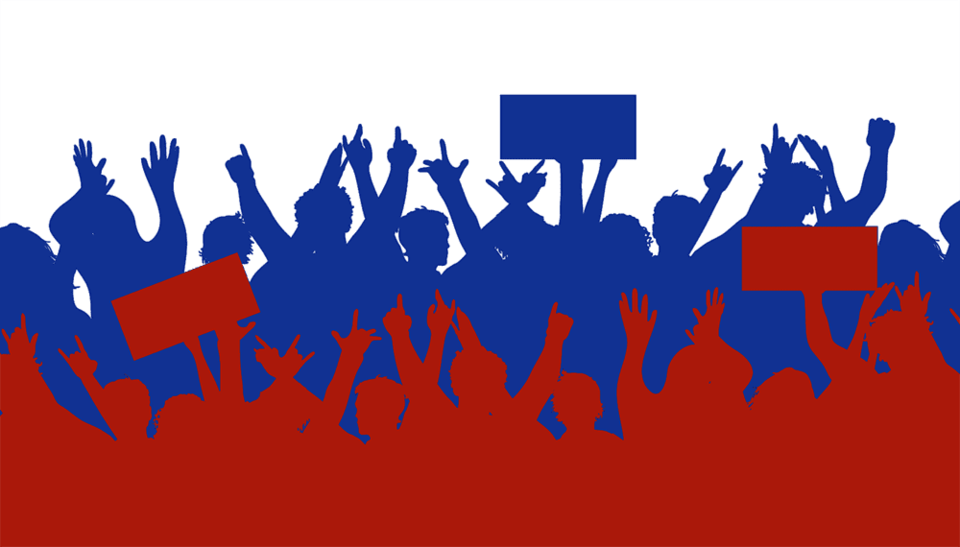The euphoria of the win is already being replaced by the reality of governing
Most of the world breathed a sigh of relief last Wednesday when Joe Biden became President of the United States. That includes many Republicans who are now free from the daily grind of explaining that their party leader did not actually say something that everyone clearly heard him say.
However, President Biden has a difficult task ahead of him.
First, of course, is the pandemic. Biden’s electoral success was based partly on confidence that he could deal with this issue. He has said all the right things, but this is a very difficult task. It will take a considerable amount of his time and resources to deal with this, and there is no guarantee of success.
Then there is the economic fallout from the pandemic. To some extent, this will correct itself when the pandemic is resolved, but there are some aspects of the economy that will still pose serious problems. The income inequality that I discussed last week was exacerbated by the pandemic, but will still be there when the pandemic is resolved.
There is a serious chasm in American society. Recent events have stoked fear and anger in the African-American community at the same time that Biden’s predecessor energized the white supremacist movement. Biden came to power with an African-American running mate and a strong positive reputation with the African-American community. He has the right credentials to deal with this issue, but it, like the pandemic, will require considerable amounts of his personal resources.
He will also have challenges dealing with a congress in which he has small majorities in both houses. He could face challenges within his own party, which has a strong progressive wing that seems to be more powerful than it has been under previous Democratic presidents. Fortunately for him, the last four years have left the Republican party in disarray, but that could embolden some of its more radical elements.
The euphoria of the win is already being replaced by the reality of governing.
The positive side of this is that Biden is experienced in Washington, and has surrounded himself with experienced people. He has projected an aura of calm competence which contrasts sharply with the previous administration.
What does all this mean for Canada?
First of all, it is always easier to deal with a competent, stable partner than an erratic bunch who are quick to consign our prime minister to a special place in hell because of some minor disagreement. The bad news about the previous administration was that the whim of the president seemed to change daily. The good news was that he had neither the attention span nor the competence to follow through on most of those whims.
The good news about the Biden administration is that it will be predictable, thoughtful and deliberate in policy initiatives. The bad news is that those policies will not always be good for Canada, but the Biden administration will have the focus and ability to execute them.
Based on Biden’s position on climate change, it was predictable that he would cancel the Keystone XL pipeline, which he did on his first day in office. This is quite upsetting to some Canadians, but Canadians were divided on the pipeline anyway. The Prime Minister must feel ambivalent about Biden’s decision. His government has been diligent in pushing for Keystone, while being fully aware that this position cost him support among his environmentalist supporters. It is convenient for Trudeau that Biden has removed him from this no-win position. Going forward, Biden and Trudeau have similar views on climate change which could be beneficial. Right now Canada’s carbon tax is unique in North America. If the United States implemented a similar tax, it would become more palatable in both nations.
Trade is always an important issue between our two countries. Biden will not be impetuous in imposing tariffs here and there and then backing off the next day. However, the Democratic party has always had strong support from trade unions. This has made it the traditional protectionist party in contrast to the traditional free-trading Republicans.
As Americans strive to come back from the current recession, we should expect to see more “Buy American” legislation and tightening trade barriers. This will reduce opportunities for Canadian business, which will be particularly damaging if Biden’s plan for infrastructure remediation goes forward. During the Obama years, Canada obtained some exemptions from the Buy American policy, but it took time. There remain some lingering trade issues involving dairy products and softwood lumber that are relatively small in dollar terms, but remain as irritants on both sides of the border.
The personal relationship between the two heads of government is always important. The generation gap will probably forestall the bromance that Trudeau had with Obama, but Trudeau and Biden have much in common. They are both pragmatic, moderate liberals facing challenges from both the right and the left. They will likely get along well at the personal level, but Biden will still face the domestic constraints on his actions mentioned above.
An interesting relationship to watch will involve the two heads of government in waiting—Chrystia Freeland and Kamala Harris. These are two politically savvy, moderately liberal women who have broken barriers in their respective governments. Harris has Canadian ties from her high school years in Montreal. These two could play an important role both now and in the future—depending on exactly what future awaits them. ◆
David Siegel is Brock University Emeritus Professor of Political Science.



